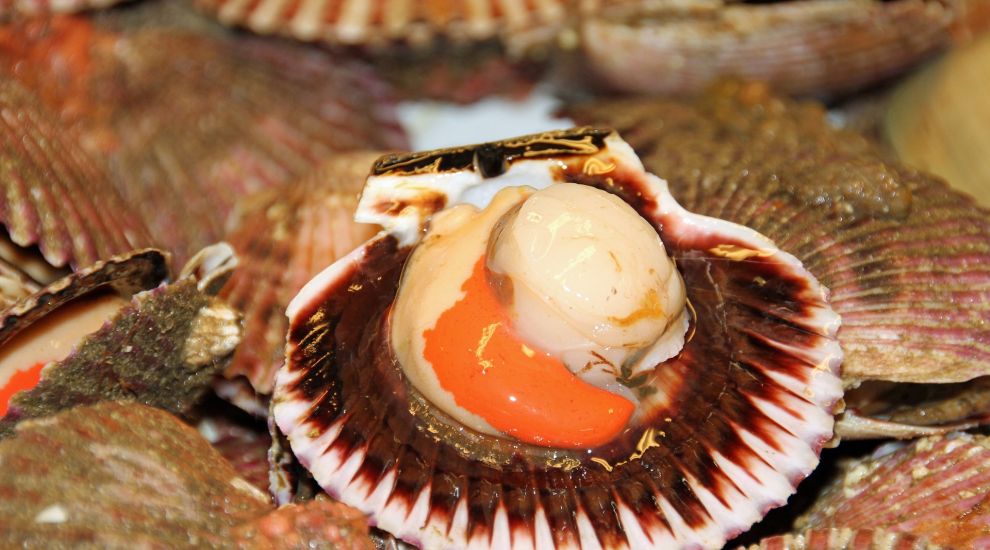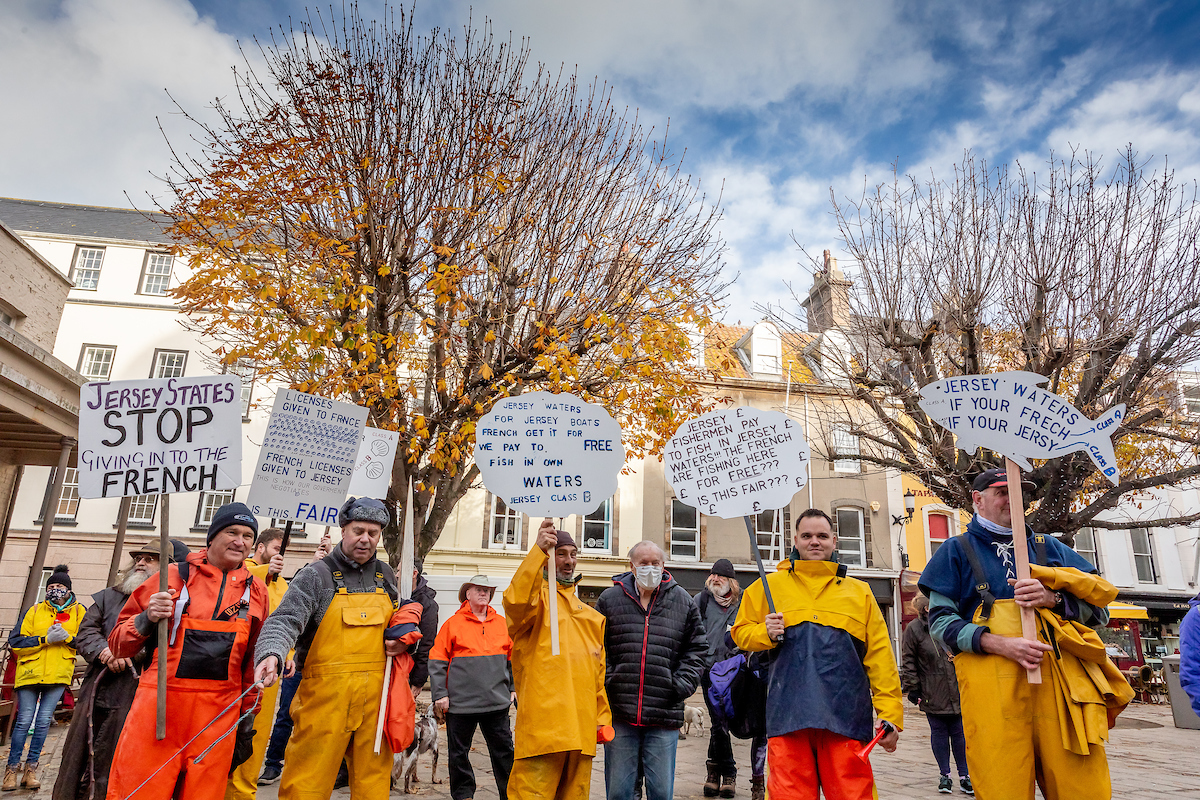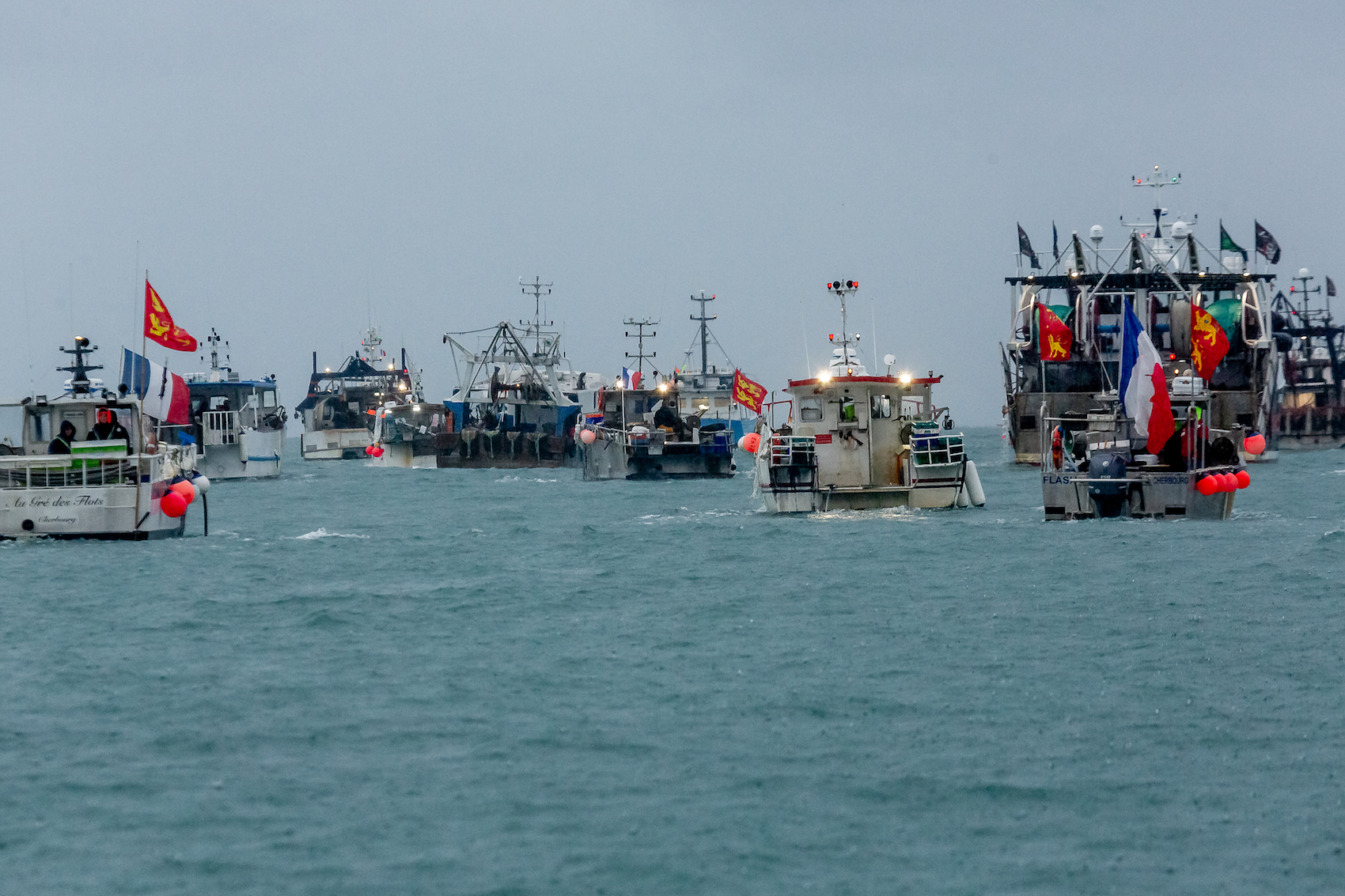


Jersey's government is hoping that a scallop sampling exercise will ensure its waters get a 'clean' bill of health to help ease post-Brexit shellfish trading difficulties.
In December, Jersey fisherman took to the streets of St. Helier to complain about their treatment since the UK, and by extension Jersey, formally left the EU at the end of 2020.
One of their complaints was that the EU had ‘downgraded’ the classification of Jersey’s waters – meaning that scallops caught in Jersey waters by island fishermen were no longer treated as coming from ‘clean’ water, according to EU rules.
They highlighted a disparity, in that French scallopers could catch the bivalve mollusc in exactly the same Jersey waters, but land their produce in the EU without restriction.
However, Environment Minister John Young said that, after sampling carried out by his department, he hoped the scallop harvesting areas would soon receive a clean classification.

Pictured: Local fishers protested in the Royal Square in December, their concerns including the lack of 'A' classification of Jersey's waters.
This would be subject to a final report by the UK Government’s Centre for Environment, Fisheries and Aquaculture, which is expected to be published by the end of March.
He added that, even if given the top ‘A’ rating of water cleanliness, Jersey fishermen would still be prevented from landing their scallops directly in France, due to Jersey now being a ‘third country’ to the EU, but they would still be able to be exported by merchants through approved border posts.
Deputy Young said: “Following the completion of our scallop sampling, which is still ongoing over a continuous period of time, it is envisaged that positive results will:
The minister also said the Government was not involved in the trading of fishing licences. Jersey has licenced local fishermen, who have paid a single admin fee – currently £112 – since 1997.
Now, French fishermen will also have to pay a licence fee, although it has been deferred this year. The minister has the power to make this an annual charge if he wishes, although at the moment it is just at the point of licence issuing.
However, local fishers have said that licences have changed hands for more than £70,000, with their French counterparts receiving state support, which helps meet this cost.
Deputy Young said the Government was not involved in this trading between fishers.

Pictured: French boats protesting off Jersey last May. Licences issued by Jersey for just over £100 can be traded for tens of thousands of pounds by fishers.
He said: “Typically, when a fisher retires, they sell their licence entitlement either with the vessel or separately. Over the years the price of licence entitlement changing hands has increased which means that many fishers who received the original licence for free have profited significantly by selling on their licences to incoming fishers.
“Anecdotally, many fishers have found that their licence has been a sound investment due to the increase in value that could be realised on sale.
“It should be noted that governments are not involved in these financial transactions and that the Government of Jersey specifically does not condone, nor does it profit from, the above practices.
He added: “French fishers that qualify for a licence do so on the basis of demonstrating commercial fishing in the track record period defined in the Trade and Cooperation Agreement.
“These are new licences that form their own pool of licences. French fishers qualifying for one of these initial licences do not pay for them just as British fishers did not pay for licences when first issued based on their track record of commercial fishing.
Deputy Young was responded to questions asked by the Environment, Housing and Infrastructure Scrutiny Panel.
Meanwhile, another part of the year-long fishing dispute between Jersey and France is expected to soon enter a new chapter.
With the end-of-January deadline for the EU to provide data of past fishing activity carried out by boats on Jersey's 'orange' list fast approaching, the Government plans to soon move on to the next phase of licensing: attaching conditions to the licences it has already issued.
Comments
Comments on this story express the views of the commentator only, not Bailiwick Publishing. We are unable to guarantee the accuracy of any of those comments.